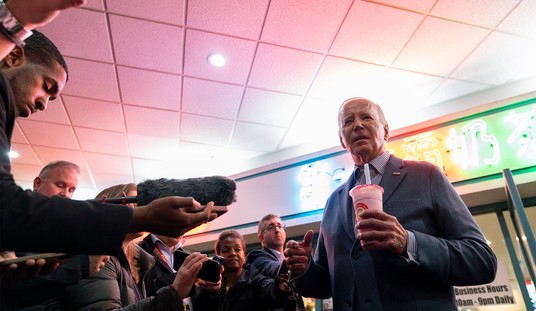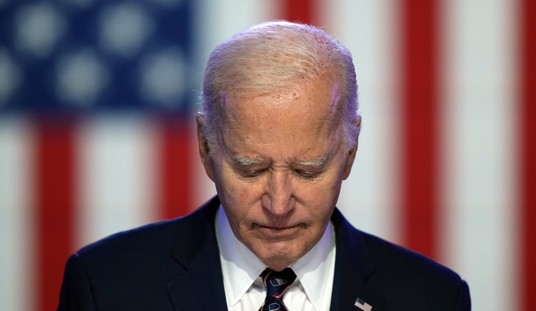(Crossposted from “The Gate” blog at www.gatestoneinstitute.org.)
The correct answer is, “Neither of the above.”
Depending on whom you believe, Egypt’s Muslim Brotherhood will ally with Saudi Arabia (according to Fouad Ajami) or Iran (according to former Indian diplomat M.K. Bhadrakumar. These are mutually exclusive scenarios given the extreme enmity between Riyadh and Tehran, intensified by Syria’s civil war. I don’t believe either scenario, but both of them are worth reading as gauges of the complexity of the Middle East’s descent into chaos. First, Ajami, the tireless cheerleader of the Arab Spring and true believer in Arab democracy (in Tablet last week):
It should have come as no surprise that Egypt’s new president, Mohamed Morsi, made his first official foreign visit to Saudi Arabia. Morsi, a Muslim Brotherhood man, went to Arabia last month for both religious and political reasons: He prayed in Mecca, and then there was a formal summit in Jeddah with the Saudi monarch and his crown prince. There was nothing concealed—the summiteers announced that theirs would be an alliance of “moderate Sunni Islam.” There was no need to mention Iran and its tributaries, the embattled Syrian regime, and Hezbollah in Beirut: For Saudi Arabia, this is the most natural of alliances, a return to the time of Hosni Mubarak when the Saudi-Egyptian axis held sway.
Nowhere does Prof. Ajami mention what the casual reader of any newspaper knows, namely that the Saudis hate and fear the Muslim Brotherhood as much as they hate and fear Iran, because the Muslim Brotherhood is the only force with the potential to overthrow the Saudi monarchy. This remarkable lapse identifies the article as prescriptive rather than descriptive, that is to say, more of Ajami’s wishful thinking. He adds:
In Egypt they would find a natural partner. Egypt had taken time out from the game of nations: It had a revolution to settle, a fight for the makeup of a new order. With the triumph of the Muslim Brotherhood in the presidential election, the Egyptians were ready to return to the regional contest. Egypt is in desperate need of Saudi money, employment opportunities for its vast population, and tourist revenues. The struggle against Iran is to be anchored in the needs of both countries. There is Sunni solidarity at work, but more important, cold reasons of statecraft. American influence in the Persian Gulf and the Fertile Crescent is at a low point, a sectarian Sunni-Shia war has wrecked the peace of the region. The Muslim Brotherhood in Cairo and the Saudi rulers know how to bury their differences in order to fight a Shiite enemy.
The Saudis are cautious about feeding the mouth that bites their hand, however. And after Prof. Ajami’s panegyrics to the Arab Spring, his audience in Riyadh is limited to the staff of the American Embassy. M.K. Bhadrakumar, formerly India’s ambassador to Turkey among other countries, explains why in a blog post last week:
This is a development that holds the potential to shake up Middle Eastern politics — Iranian vice-president visiting Cairo. The two countries pulled down the shutters following the Iranian revolution in 1979 and a dark period continued right till the end of the Hosni Mubarak era. The revolution on Tahrir Square one year ago heralded a thaw, the first sign of which was the permission granted to an Iranian warship to cross the Suez Canal to visit Syria. Meanwhile, the military junta permitted a second Iranian warship to cross the Suez Canal, disregarding the stern rebuke by the United States and Israel (and the annoyance of Saudi Arabia). On its part, evidently with the acquiescence of Cairo, Tehran began inviting a series of Egyptian goodwill delegations from the civil society in a sustained effort to reach out to the various sections — especially the Islamist forces — of Egyptian society. The stakes are indeed very high.
Therefore, Saudi Arabia invited the newly-elected Mohammed Morsi of the Brotherhood to visit Riyadh last month. The Saudis hoped that Morsi would play footsie on the Sunni-Sh’ite front and get Egypt to play its due role in the Syrian crisis. Critical reportage is continuing in the Saudi establishment press, even pitting the Brothers against Egypt’s Al-Azhar in a clever ploy to divide the islamist camp in Egypt. {Al-AZhar is Egypt’s religious establishment.) The point is, Riyadh has the utmost to fear from the Brothers — the spectre of the Brothers spearheading a ‘regime change’ in Saudi Arabia at some point haunts the Saudi rulers. The equations between the Saudis and the Brothers have been a troubled and often-violent one with the former Crown Prince Nayef using brutal methods to smash up the activities of the Brothers on Saudi soil. This is where an Egyptian-Iranian rapprochement at this point becomes a major setback for the Saudi regime. If the Iranian news report carried by Fars is to be believed, Iranian vice-president Hamid Baqayee may visit Cairo to personally hand over the letter of invitation from President Mahmoud Ahmedinejad to Morsi to attend the forthcoming NAM summit meeting in Tehran.
Bhadrakumar’s report contains invaluable background, but it leaves out something obvious: Once in power, the Muslim Brotherhood’s Mohamed Morsi cannot afford to antagonize Saudi Arabia, because Egypt is living hand-to-mouth on Saudi subsidies. With a $36 billion annual trade deficit, soaring food prices (Egypt imports half its food), and just $7 billion in liquid foreign exchange reserves, Egypt is at the brink of economic disaster. Droplets of Saudi money are keeping it just this side of the brink. By the same toke, Ajami’s suggestion that Saudi help could get Egypt out of its economic mess is whimsical. The kingdom simply isn’t going to fork over tens of billions of dollars a year to support a government that might turn out to be its worst enemy in the future.
What will happen for the time being is ambiguous. Morsi will maintain contact with all the enemies of the Saudi Monarchy but do nothing dramatic to offend the Saudis; the Saudis will continue to back the Supreme Council of the Armed Forces and look for opportunities to clip Morsi’s wings; Egypt will continue to suffer crippling shortages of fuel and spot shortages of food as its economic position deteriorates; and Iran will make overtures to the Muslim Brotherhood and look for opportunities to help it subvert the Saudi monarchy. The most probable outcome is that Egypt’s military will assert control with Saudi financial backing and suppress the Muslim Brotherhood. and the Egyptian-Saudi alliance will be restored on the basis of the SCAF. Saudi Arabia will pay the bus fare of Muslim Brotherhood fighters to fight Basher Assad’s regulars in the Middle Eastern equivalent of the Eastern Front, and the Syrian meatgrinder will grind up the Brotherhood’s fighting capacity. The Turks will help because they depend on Saudi finance, too.
For more background see my July 10 essay in Asia Times Online, “The Economics of Confrontation in Egypt.”









Join the conversation as a VIP Member